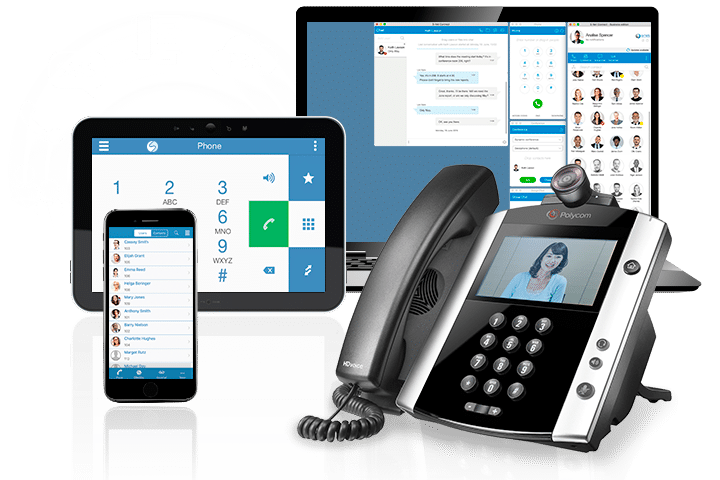There are various different types of VoIP Phone systems that can be implemented and utilized in your daily activity or professional interactions. Listed below are just a few:
1. Software Solutions
The simplest form of VoIP is a software application that is mounted on your computer and enables you to make calls to other users of the application, typically for free. Skype is an example of such a service. When using Skype, you can call any one of the service’s countless users for free – anywhere from your tablet, smartphone, or any other device that has the ability to run the software.
Even though Skype and other comparable consumer VoIP applications are ideal for businesspersons and small start-ups, businesses that are looking for something more powerful should consider self-hosted and hosted VoIP solutions.
2. Self-Hosted VoIP
A self-hosted VoIP implies that you will need to manage the installation and call delivery yourself. This can be rather tricky unless you have special domain expertise in VoIP technology. Be ready to install a private branch network for directing calls within your system to different phones. You will also require a PSTN gateway to convert your voice (analog signals) to digital signals that are ready to be delivered over the network. Based on the complexity and scale of the VoIP system, you will also need regular maintenance.
Self-hosted VoIP systems are best suited for large businesses that have the resources and manpower to employ an in-house solution. Even though they are more costly, they can still end up costing considerably less compared to standard telephones. On the other hand, solo entrepreneurs, consultants, and freelancers can utilize software-based VoIP solutions.
3. Hosted VoIP
In case of a hosted VoIP service, a third-party provider manages the complete installation and call delivery enabling you to focus on what’s actually important: your company. The service directs all relevant calls to your business and also ensures 100% uptime. Hosted VoIP solutions are more expensive as compared to self-hosted systems, but can significantly enhance overall productivity.
Examples of VoIP Phone Systems
1. Business Phone Systems
Cloud-based business phone systems offer a constant business presence allowing workers to stay connected whether they are on the run or in the office. Business Phone systems typically come with features such as instant messaging, CRM tools, video conferencing, and much more.
2. IP Phone Systems
IP phones make use of VoIP for setting up connections between two sets of users. One main advantage of IP phones is that you don’t have to pay anything to make long-distance phone calls. It packs features such as call recording, does not disturb, calls pickup, and much more.
3. Home Phone Systems
VoIP home phone systems power all your phones. It enables you to plug your current phone to the net and lets you stay connected with employees anywhere in the world. Key features include call routing, call forwarding, and many more.
A cloud phone system is a great example of a Voice over Internet Protocol (VoIP) based business telephone platform that is hosted and managed by a third-party provider. If you want to test such a solution out, I highly recommend CloudTalk as its provider.
Phone system enables at a minimum to have a main phone number and extensions which allow reaching particular employees. Thanks to Internet phones, everyone can be connected via software to one server over their IP network. Nevertheless, it can be a challenge for small or medium organizations, as installing such a system require human and budget resources, as well as infrastructure.
If you would like to benefit from VoIP system but you do not have a possibility to manage it on your own, you can always find a cloud phone system provider which will handle it professionally so you can focus on achieving your business goals. Good luck!
Source:




